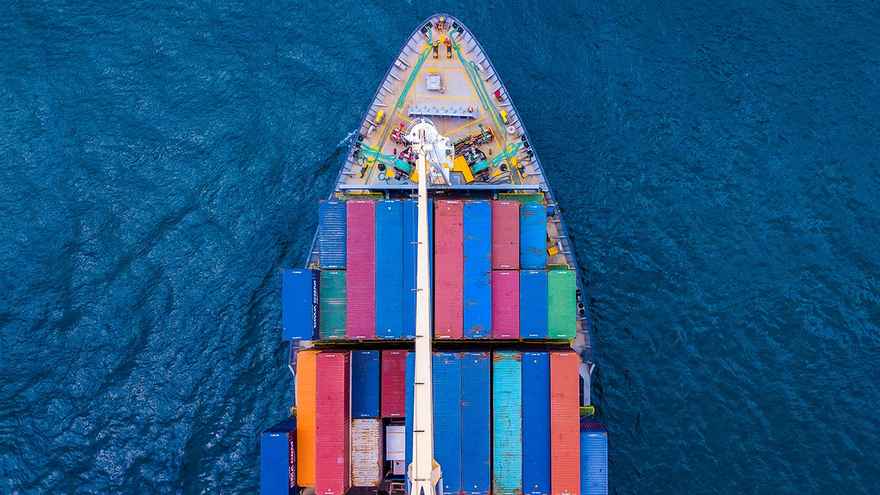The Sustainability Conundrum

If sustainability is, at its core, about staying put, using local produce, and having a minimalist lifestyle with as little as possible waste produced, then what should happen with international trade and supporting the economic growth of emerging economies?
Natasha Plowman, Managing Partner ESG and Corporate Reputation at MSL UK does not think that sustainability is about all things minimalistic:
I don't think it is - but it is about waste, over consumption and single use of materials. I do think circularity is important. I also think we need to look at the trade-offs and consequences of unfettered growth. There are so many contradictions in what society values and how it determines value. I, for one, do not want to live in a world that is so insular - but the line is pretty hard to find. I also find the paternalism of wealthy countries towards emerging pretty problematic. Do as we say, not as we do...
Paternalism - or even patronising - is an issue indeed. But if one country's economic power is so low that it cannot sustain its own growth without access to international markets, what can be done? Sterilise the population of that country which will, inadvertently, lead to extinction? Provide them with foreign aid to help them become self-sustainable? Or welcome their produce which only fuels the West’s incessant consumption?
What is becoming clearer than ever before is that, as argued further by Plowman, ‘no country can survive without access to international markets. Then we get into the conversation about what each country should focus on in its human and/ or natural resources. Which has also got us into this quagmire in the first place…’.
According to Vince Pizzoni, Circklo mentor and Professor of Chemical and Environmental Engineering at the University of Nottingham, sustainability may be about some of the aspects related to a minimalist and local-only lifestyle and consumption pattern, and it might mean less air travel in the short to mid-term. However, Pizzoni believes that sustainability ‘is also the circular economy and moving to using more sustainable forms of transportation and energy production. This, of course, will all take time. International trade has to continue, and we need to find ways of supporting emerging economies as we move through the transition.’
One should constantly be mindful of the fact that sustainability, circularity, carbon offsets and other similar environmentally and governance focussed principles do have – inherently so – their own trade-offs. Circularity and sustainability cannot be done in isolation - one cannot draw a geographic line and pretend sustainability happens just east or west of that line.
Steve Burton, Director and Founder at Andusia Holdings Limited, argues that:
There are a lot of people who think a country should deal with its waste (and thus consumption) within its own boundaries, but the same people are happy to import resources we don’t have and export resources that we have in excess. I don’t see waste any differently.
We have become a global economy - we just need to find ways of reducing waste and excess production and finding the most efficient solutions. It’s evolution. The problem didn’t exist until the industrial revolution, and I believe technology will provide the answer, so that we don’t lead a less rewarding life; [one] where we consume less, travel less, [or] prevent the underdeveloped from growing.
The rapid rise of technology and digitalisation is highlighting the redundancy of traditional business models. Technology, once the right solutions are identified and proven, should embrace regenerative capitalism; in other words, it should be made available to all, not to just a few to ensure their market sovereignty and competitive advantage.
Unlike the supporters of sustainability as a way to lead a more frugal and less resource intensive life, Claire Benson – the co-founder and Director of SDG Change Makers – firmly believes that ‘sustainable development is embedded within international relations. So [it is] not about about staying put, but finding the balance in any situation, to give economies the opportunity to develop. In the 30yrs since I studied this at Uni, not a whole heap has really changed, apart from awareness and building foundations for change. Hopefully now is the time to implement but it feels like there is still a way to go [regarding] education about sustainable development. A bit like the two sides of farming!!’
Sustainability is not just an environmental protection concept – in other related articles it has been argued that sustainability is concerned with more than just nature and natural resources, it is needs to include people growth and development, as well financial profitability.
For the supporters of the ‘environment only’ approach, sustainability and international trade are, indeed, mutually exclusive. Technology is beautiful when all else works: populations in developing economies are mostly relying on subsistence farming and, many, on substantially GDP-crippling imports. Until a certain level playing field of sustainable growth is achieved globally, one can hardly speak of globalisation beyond that of social media channels and the world wide web.
However, the global sustainability issue cannot be addressed in geographic or sector specific isolation, nor can it be narrowed down to just patterns of consumption or use. Technological advancements today – and evidence in this regard is the incredible global effort undertaken by the pharmaceutical community to distribute the Covid-19 vaccines around the world – should allow developed countries and powerful multinational corporations to support and contribute to a sustained growth, in all respects, of the underdeveloped economies. It is a matter of willingness to do so.